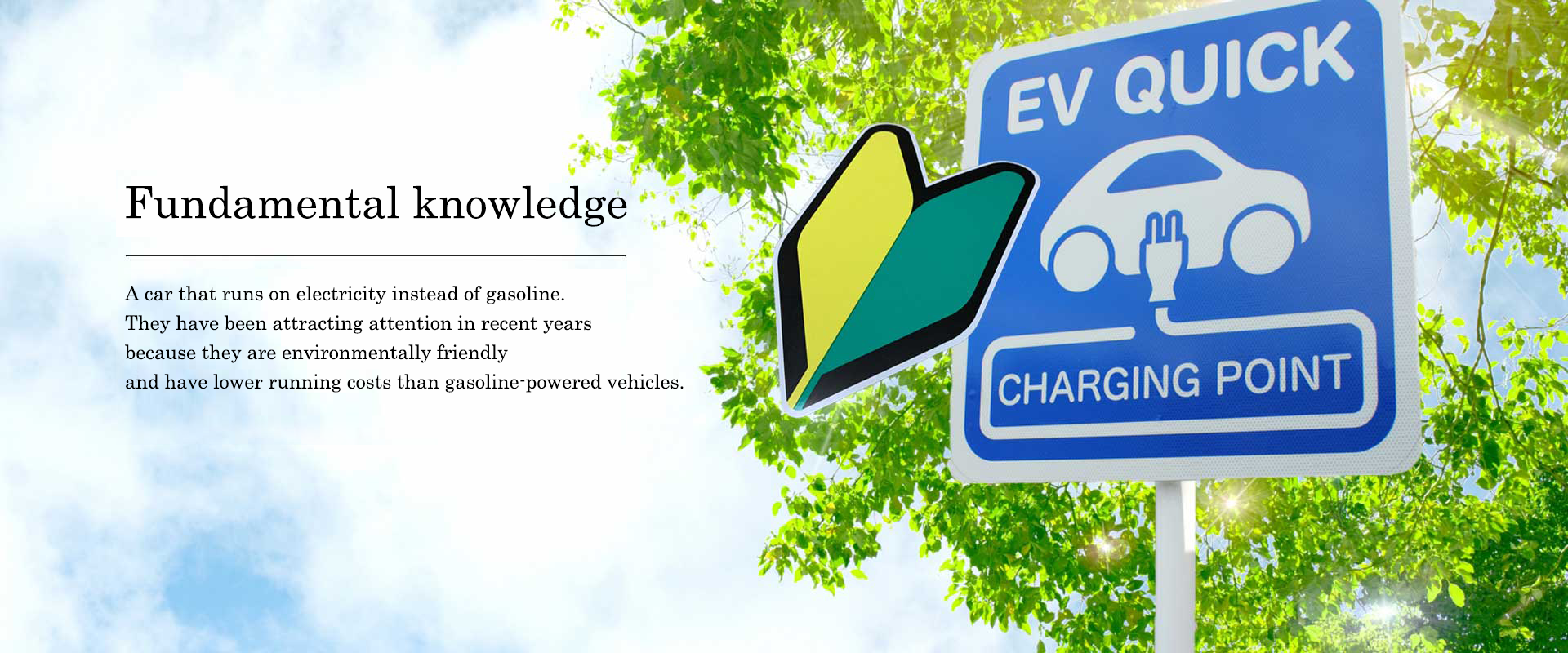
Due to the Paris Agreement adopted in 2015 and the 2030 greenhouse gas emission reduction targets, national governments and car manufacturers are expected to further shift to electric vehicles in the future. Many car manufacturers are planning to launch new electric vehicles from 2016 onwards, and the number of users is expected to increase further in the future. In line with this, the spread of chargers is being promoted and the Government is supporting this with subsidies.
Hot now! Electric Vehicles!
A vehicle that runs on electricity instead of petrol. They have attracted attention in recent years because they are environmentally friendly and have lower running costs than petrol-powered vehicles.
Policies are being put in place around the world to encourage the switch from petrol to EVs.
●India All vehicles sold in the country to be EVs by 2030.
●China Mandates the manufacture and sale of a certain percentage of EVs and other products from 2019 onwards.
●UK Ban on sales of petrol and diesel vehicles after 2040.
●France Ban on the sale of petrol and diesel vehicles in the country after 2040.
The Japanese Government is also subsidising clean energy vehicles and recharging infrastructure and promoting environmentally friendly infrastructure.
Car manufacturers have also announced that they are developing EVs or will focus on EVs.
●Toyota Toyota, Mazda and Denso form a new company to develop electric vehicles.
●Nissan New LEAF launched in October 2017.
Policies are being put in place around the world to encourage the switch from petrol to EVs.
●India All vehicles sold in the country to be EVs by 2030.
●China Mandates the manufacture and sale of a certain percentage of EVs and other products from 2019 onwards.
●UK Ban on sales of petrol and diesel vehicles after 2040.
●France Ban on the sale of petrol and diesel vehicles in the country after 2040.
The Japanese Government is also subsidising clean energy vehicles and recharging infrastructure and promoting environmentally friendly infrastructure.
Car manufacturers have also announced that they are developing EVs or will focus on EVs.
●Toyota Toyota, Mazda and Denso form a new company to develop electric vehicles.
●Nissan New LEAF launched in October 2017.
Types of EV chargers
Slow charging Regular charger

These chargers are used in places where cars are parked for long periods of time, such as in ordinary homes.Depending on the type of vehicle, it takes 3-15 hours to fully charge the battery.
*Charging time depends on the amount of storage batteries in the vehicle, the output of the charger, the charging environment and other factors.
The charger itself is relatively affordable and installation is often simple.
| Ex. | Price of the main unit ¥400,000. |
| Construction cost ¥500,000. | |
| Subsidies effectively cost ¥300,000. | |
| *Subsidies are subject to certain conditions for eligibility. |
Speed charging Rapid charger

Chargers recommended for commercial and public facilities where parking time is short.
It can be charged to 80% in 15~30 minutes.
For 50 kw or more, installation of high-voltage power receiving and transforming equipment, power contracts with power companies, etc. are required.
The ability to charge in a short period of time is very much appreciated by electric vehicle users and is in high demand. This is an effective way of attracting more customers.
| Ex. | Price of the main unit ¥2 million. |
| Construction cost ¥2.5 million. | |
| The subsidy actually costs ¥1.5 million. | |
| *Subsidies are subject to certain conditions for eligibility. |
